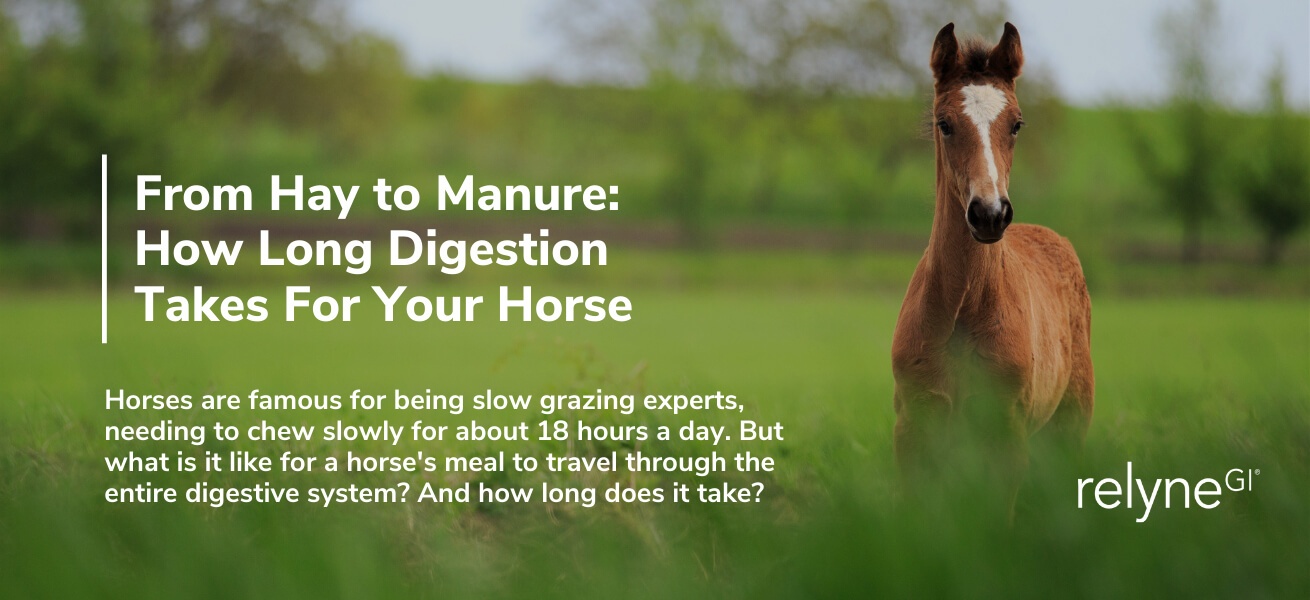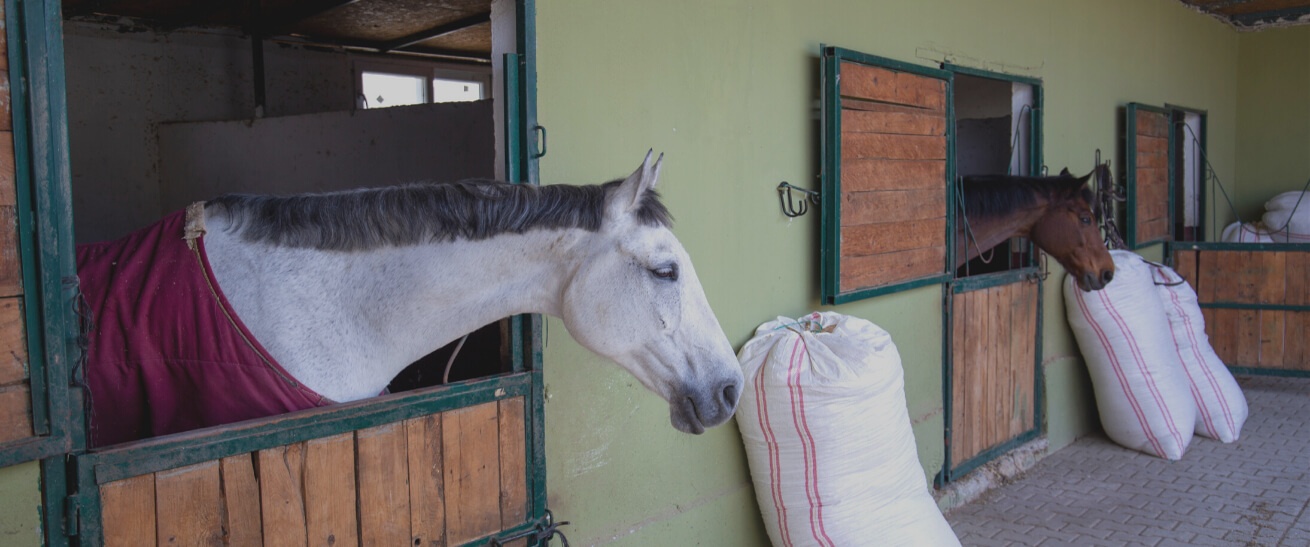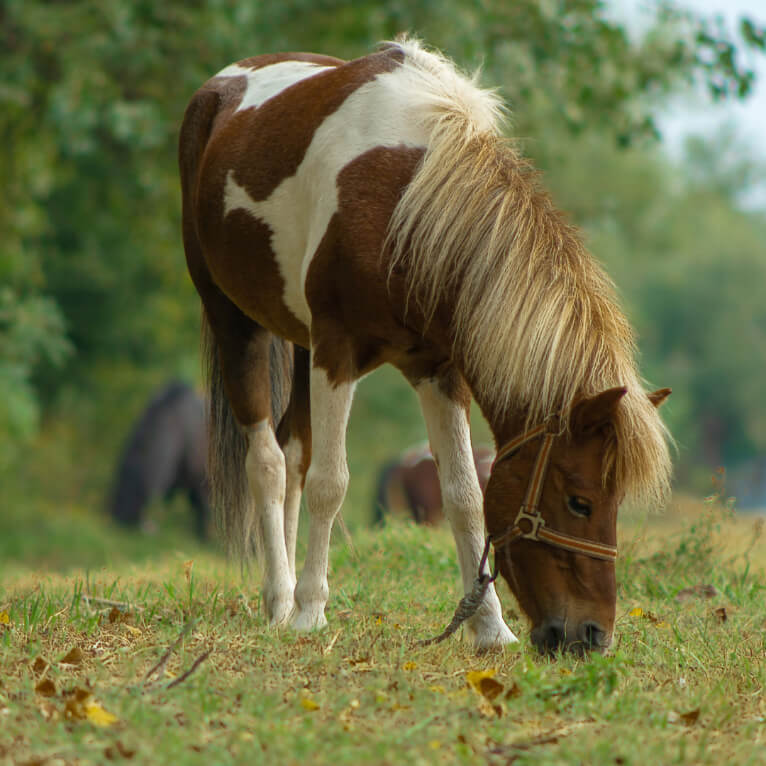Following your horse’s food through the digestive system…
Depending on your horse and what he’s eating, the hay may only spend a few minutes in his mouth. Some feeds, like feeds soaked with water, are easier to chew than long-stem forage that’s filled with thick stems. Your horse’s dental health will also influence his chewing time and effectiveness.
Start of the digestive process
Chewing starts the digestive process as the food breaks down into smaller pieces. The addition of saliva acts as a lubricant as the food travels down the esophagus. In the stomach, saliva will help to buffer the stomach acids. Your horse’s stomach is continuously producing acids, and the constant introduction of saliva and forage helps keep that acid from creating gastric ulcers.
Some research tells us that the horse’s stomach holds eight to 15 liters, and food usually spends about 30 minutes in the stomach. A full stomach can empty into the small intestine in about 12 minutes. During that small window of time, the enzyme pepsin starts to digest proteins.
In the small intestine, where enzymes continue to digest food, the hay and feeds travel at a rate of 30 cm per minute. Sugars, fats, and proteins are processed with different enzymes, and the small intestine absorbs the nutrients. As food reaches the hindgut, about 90 minutes have passed.
Things slow down considerably in the hindgut. Your horse’s meals ferment here, creating volatile fatty acids. The hindgut is where most of the fiber in your horse’s diet digests with the help of billions of microbes. Water is also removed from what remains of your horse’s food, and manure is produced.
Should some starchy foods zip through the small intestine and arrive in the hindgut largely undigested, trouble can form. Bacteria will rapidly digest these sugars, which may lead to hindgut acidosis, colic, and laminitis. The risk of this increases as the meal size of starchy, sugary food increases.
This process in the hindgut takes upwards of 24 hours, and most research agrees that the total digestion time is around 36 hours or more.
Notice changes in your horse’s habits to monitor his digestive health
Most horses are creatures of habit, and over time we can observe their eating and manure-producing tendencies. Noticing any changes in your horse’s regular routine gives you valuable information about their digestive health.
Memorize your horse’s eating habits by noting how long it takes him to eat his hay ration and any meals. Notice his drinking patterns around his eating, as well. Look for dropped food or any discomfort while chewing.
Take note of your horse’s manure consistency, volume, location, and even color. Some horses will pass manure on a fairly regular schedule as well. Changes to your horse’s manure habits will reflect changes inside his body.
If you would like to find out more on how you can support your horse’s digestion, please book a call with the relyneGI support team HERE.







